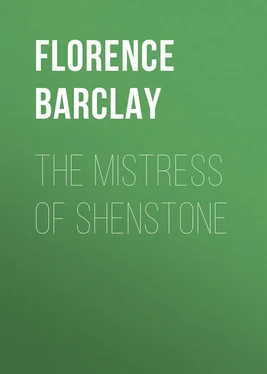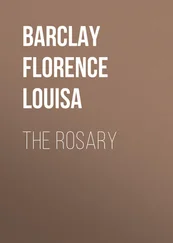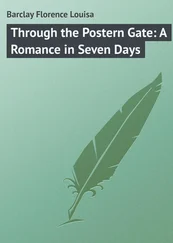Florence Barclay - The Mistress of Shenstone
Здесь есть возможность читать онлайн «Florence Barclay - The Mistress of Shenstone» — ознакомительный отрывок электронной книги совершенно бесплатно, а после прочтения отрывка купить полную версию. В некоторых случаях можно слушать аудио, скачать через торрент в формате fb2 и присутствует краткое содержание. Жанр: foreign_antique, foreign_prose, на английском языке. Описание произведения, (предисловие) а так же отзывы посетителей доступны на портале библиотеки ЛибКат.
- Название:The Mistress of Shenstone
- Автор:
- Жанр:
- Год:неизвестен
- ISBN:нет данных
- Рейтинг книги:4 / 5. Голосов: 1
-
Избранное:Добавить в избранное
- Отзывы:
-
Ваша оценка:
- 80
- 1
- 2
- 3
- 4
- 5
The Mistress of Shenstone: краткое содержание, описание и аннотация
Предлагаем к чтению аннотацию, описание, краткое содержание или предисловие (зависит от того, что написал сам автор книги «The Mistress of Shenstone»). Если вы не нашли необходимую информацию о книге — напишите в комментариях, мы постараемся отыскать её.
The Mistress of Shenstone — читать онлайн ознакомительный отрывок
Ниже представлен текст книги, разбитый по страницам. Система сохранения места последней прочитанной страницы, позволяет с удобством читать онлайн бесплатно книгу «The Mistress of Shenstone», без необходимости каждый раз заново искать на чём Вы остановились. Поставьте закладку, и сможете в любой момент перейти на страницу, на которой закончили чтение.
Интервал:
Закладка:
“Wake, wake,
Sad heart!
Rise up, and sing!
On God’s fair earth, ’mid blossoms blue.
Fresh hope must ever spring.
There is no room for sad despair,
When heaven’s love is everywhere.”
Then, as the train sped onward through Wiltshire, Somerset, and Devon, Lady Ingleby felt the mantle of her despondence slipping from her, and reviewed the past, much as a prisoner might glance back into his dark narrow cell, from the sunlight of the open door, as he stood at last on the threshold of liberty.
Seven months had gone by since, on that chill November evening, the news of Lord Ingleby’s death had reached Shenstone. The happenings of the weeks which followed, now seemed vague and dreamlike to Myra, just a few events standing out clearly from the dim blur of misery. She remembered the reliable strength of the doctor; the unselfish devotion of Margaret O’Mara; the unspeakable comfort of Jane’s wholesome understanding tenderness. Then the dreaded arrival of her mother; followed, immediately, according to promise, by the protective advent of Georgina, Duchess of Meldrum; after which, tragedy and comedy walked hand in hand; and the silence of mourning was enlivened by the “Hoity-toity!” of the duchess, and the indignant sniffs of Mrs. Coller-Cray.
Later on, details of Lord Ingleby’s death came to hand, and his widow had to learn that he had fallen – at the attempt upon Targai, it is true – but the victim of an accident; losing his life, not at the hands of the savage enemy, but through the unfortunate blunder of a comrade. Myra never very clearly grasped the details: – a wall to be undermined; his own patent and fearful explosive; the grim enthusiasm with which he insisted upon placing it himself, arranging to have it fired by his patent electrical plan. Then the mistaking of a signal; the fatal pressing of a button five minutes too soon; an electric flash in the mine, a terrific explosion, and instant death to the man whose skill and courage had made the gap through which crowds of cheering British soldiers, bursting from the silent darkness, dashed to expectant victory.
When full details reached the War Office, a Very Great Personage called at her house in Park Lane personally to explain to Lady Ingleby the necessity for the hushing up of some of these greatly-to-be-deplored facts. The whole unfortunate occurrence had largely partaken of the nature of an experiment. The explosive, the new method of signalling, the portable electric plant – all these were being used by Lord Ingleby and the young officers who assisted him, more or less experimentally and unofficially. The man whose unfortunate mistake caused the accident had an important career before him. His name must not be allowed to transpire. It would be unfair that a future of great promise should be blighted by what was an obvious accident. The few to whom the name was known had been immediately pledged to secrecy. Of course it would be confidentially given to Lady Ingleby if she really desired to hear it, but —
Then Myra took a very characteristic line. She sat up with instant decision; her pale face flushed, and her large pathetic grey eyes shone with sudden brightness.
“Pardon me, sir,” she said, “for interposing; but I never wish to know that name. My husband would have been the first to desire that it should not be told. And, personally, I should be sorry that there should be any man on earth whose hand I could not bring myself to touch in friendship. The hand that widowed me, did so without intention. Let it remain always to me an abstract instrument of the will of Providence. I shall never even try to guess to which of Michael’s comrades that hand belonged.”
Lady Ingleby was honest in making this decision; and the Very Great Personage stepped into his brougham, five minutes later, greatly relieved, and filled with admiration for Lord Ingleby’s beautiful and right-minded widow. She had always been all that was most charming. Now she added sound good sense, to personal charm. Excellent! Incomparable! Poor Ingleby! Poor – Ah! he must not be mentioned, even in thought.
Yes; Lady Ingleby was absolutely honest in coming to her decision. And yet, from that moment, two names revolved perpetually in her mind, around a ceaseless question – the only men mentioned constantly by Michael in his letters as being always with him in his experiments, sharing his interests and his dangers: Ronald Ingram, and Billy Cathcart – dear boys, both; her devoted adorers; almost her dearest, closest friends; faithful, trusted, tried. And now the haunting question circled around all thought of them: “Was it Ronald? Or was it Billy? Which? Billy or Ronnie? Ronnie or Billy?” Myra had said: “I shall never even try to guess,” and she had said it honestly. She did not try to guess. She guessed, in spite of trying not to do so; and the certainty, and yet un certainty of her surmisings told on her nerves, becoming a cause of mental torment which was with her, subconsciously, night and day.
Time went on. The frontier war was over. England, as ever, had been bound to win in the end; and England had won. It had merely been a case of time; of learning wisdom by a series of initial mistakes; of expending a large amount of British gold and British blood. England’s supremacy was satisfactorily asserted; and, those of her brave troops who had survived the initial mistakes, came home; among them Ronald Ingram and Billy Cathcart; the former obviously older than when he went away, gaunt and worn, pale beneath his bronze, showing unmistakable signs of the effects of a severe wound and subsequent fever. “Too interesting for words,” said the Duchess of Meldrum to Lady Ingleby, recounting her first sight of him. “If only I were fifty years younger than I am, I would marry the dear boy immediately, take him down to Overdene, and nurse him back to health and strength. Oh, you need not look incredulous, my dear Myra! I always mean what I say, as you very well know.”
But Lady Ingleby denied all suspicion of incredulity, and merely suggested languidly, that – bar the matrimonial suggestion – the programme was an excellent one, and might well be carried out. Young Ronald being of the same opinion, he was soon installed at Overdene, and had what he afterwards described as the time of his life, being pampered, spoiled, and petted by the dear old duchess, and never allowing her to suspect that one of the chief attractions of Overdene lay in the fact that it was within easy motoring distance of Shenstone Park.
Billy returned as young, as inconsequent, as irrepressible as ever. And yet in him also, Myra was conscious of a subtle change, for which she, all too readily, found a reason, far removed from the real one.
The fact was this. Both young men, in their romantic devotion to her, had yet been true to their own manhood, and loyal, at heart, to Lord Ingleby. But their loyalty had always been with effort. Therefore, when – the strain relaxed – they met her again, they were intensely conscious of her freedom and of their own resultant liberty. This produced in them, when with her, a restraint and shyness which Myra naturally construed into a confirmation of her own suspicions. She, having never found it the smallest effort to remember she was Michael’s, and to be faithful in every thought to him, was quite unconscious of her liberty. There having been no strain in remaining true to the instincts of her own pure, honest, honourable nature, there was no tension to relax.
So it very naturally came to pass that when one day Ronald Ingram had sat long with her, silently studying his boots, his strong face tense and miserable, every now and then looking furtively at her, then, as his eyes met the calm friendliness of hers, dropping them again to the floor: – “Poor Ronnie,” she mused, “with his ‘important career’ before him. Undoubtedly it was he who did it. And Billy knows it. See how fidgety Billy is, while Ronnie sits with me.”
Читать дальшеИнтервал:
Закладка:
Похожие книги на «The Mistress of Shenstone»
Представляем Вашему вниманию похожие книги на «The Mistress of Shenstone» списком для выбора. Мы отобрали схожую по названию и смыслу литературу в надежде предоставить читателям больше вариантов отыскать новые, интересные, ещё непрочитанные произведения.
Обсуждение, отзывы о книге «The Mistress of Shenstone» и просто собственные мнения читателей. Оставьте ваши комментарии, напишите, что Вы думаете о произведении, его смысле или главных героях. Укажите что конкретно понравилось, а что нет, и почему Вы так считаете.












